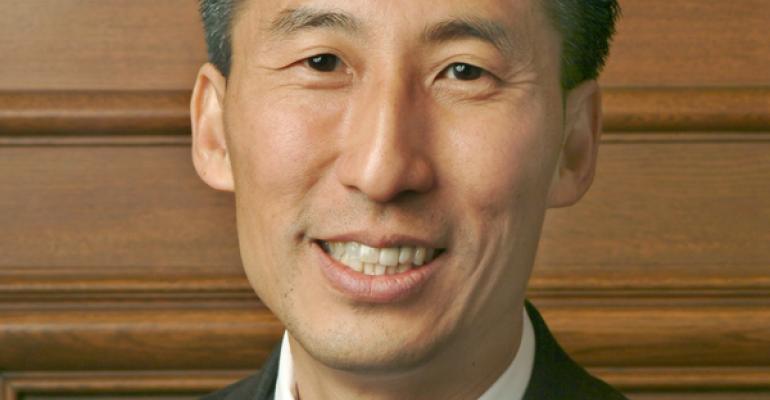San Francisco supervisors gave initial approval to a controversial law Tuesday aimed at curbing childhood obesity by prohibiting the use of toys or other incentives in the sale of kids' meals that do not meet specified nutritional guidelines.
The board voted 8-3 to approve the first reading of the amended ordinance. If granted final approval, the new law will be phased in over the next year, becoming effective Dec. 1, 2011.
The measure’s author, Supervisor Eric Mar, has said that prohibiting the use toys, trading cards and other incentives appealing to children to sell kids’ meals was an “issue of equity and social justice.”
That is so, Mar contended, because the foods often found in kids’ meals are “way too high in fat and sugar and calories” and sodium and thereby contribute to the higher-than-average rates of obesity and diabetes among low-income black and Latino children.
Industry representatives, including executives from Oak Brook, Ill.-based McDonald’s Corp., have criticized the measure, noting that many chains already offer lower-fat and lower-calorie options and fruit for kids.
"We are extremely disappointed with today’s decision. It’s not what our customers want, nor is it something they asked for,” said Danya Proud, a spokeswoman for McDonald's.
She added: “Credible and objective research demonstrates this proposal is unrealistic based on data showing that most children rarely eat a meal as detailed by the proposed ordinance.”
The California Restaurant Association of Sacramento, Calif., opposed the ordinance.
“The message is that parents are not competent to make decisions on behalf of their children when it comes to nutrition, and I think that is why you have seen such widespread ridicule and resistance to this proposal,” said CRA spokesman Daniel Conway.
McDonald’s Proud echoed that sentiment, saying, “Parents tell us it's their right and responsibility — not the government's — to make their own decisions and to choose what’s right for their children.”
Supporters of the ordinance also had their say following the vote, including the nonprofit Corporate Accountability International, or CAI, which issued a press release following the board’s action.
“Supervisor Mar and his colleagues took a courageous stand in advancing this common sense measure,” Kelle Louaillier, CAI’S executive director, said in the statement. “As the city has so many times before, it put children's health first and paved the way for other cities to curb the predatory marketing that continues to hold public health education back.”
San Francisco Mayor Gavin Newsom’s office has said that the mayor would veto the measure, if enacted. However Mar and his co-sponsors — John Avalos, David Campos and David Chiu — made such a strategy questionable, as they persuaded a two-thirds majority of the 11-person board to support the rule, enough to override a Newsom veto.
The passage of the San Francisco ordinance would mark the second time this year that elected county officials in California have taken the fast-food industry to task with kids' meals. Supervisors in nearby Santa Clara County passed a similar measure in April.
The San Francisco ordinance would prohibit the use of toys and other incentives in the sale of meals that exceeded 600 calories, contain more than 640 milligrams of sodium, derive more than 10 percent of total calories from saturated fat or derive more than 35 percent of total calories from fat.
In addition, the ordinance also requires kids' meals sold using toys and other incentives to contain a half cup of vegetables and a half a cup of fruit, but exclude beverages that get more than 35 percent of their calories from fat or more than 10 percent of their calories from “added caloric sweeteners,” such as refined sugars.
The ordinance generated substantial public debate during two hearings before the Board of Supervisors’ Land Use and Economic Development Committee. That committee, which included Mar and Chiu, voted 3-0 on Oct. 4 to recommend passage of the ordinance to the full board.
Voting against the ordinance were supervisors Michela Alioto-Pier, Carmen Chu and Sean Elsbernd.
The swing vote needed to give Mar and his supporters a veto-proof majority came from supervisor Bevan Dufty, who said of the passage of the measure, “I do believe the [restaurant] industry will take note of this.” He predicted that elected officials in other cities “will be emboldened by the passage of this ordinance” to take a similar stand.
While it remains to be seen if the two California county ordinances will spur similar laws in other cities or counties throughout the state or country, the Center for Science in the Public Interest has indicated it will take the legal route to slow or derail the use of toys and other incentives in the sale of kids’ meals. In late June, Washington, D.C.-based CSPI threatened to take McDonald’s to court unless, as CSPI executive director Michael Jacobsen put it, the world’s largest restaurant chain “agrees to stop using toys beguile young children.”
CORRECTION: An earlier version of this story incorrectly indicated that the San Francisco Board of Supervisors had given final approval to the kids' meal ordinance on Nov. 2. It has been corrected to say that the board actually voted to approve the first reading of the ordinance. The board formally voted to adopt the law on Nov. 9. Click here for the latest story.
Contact Alan J. Liddle at [email protected].




